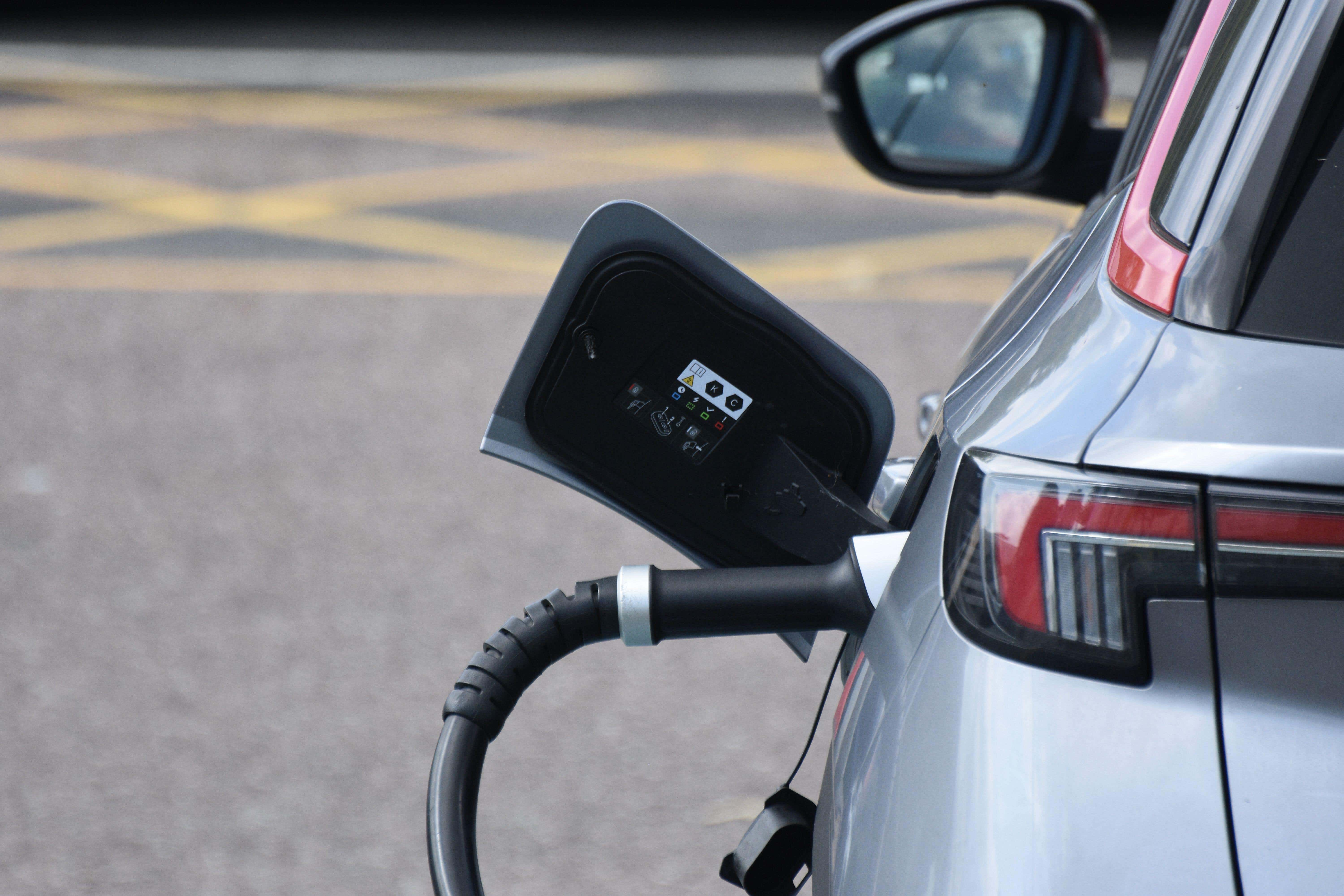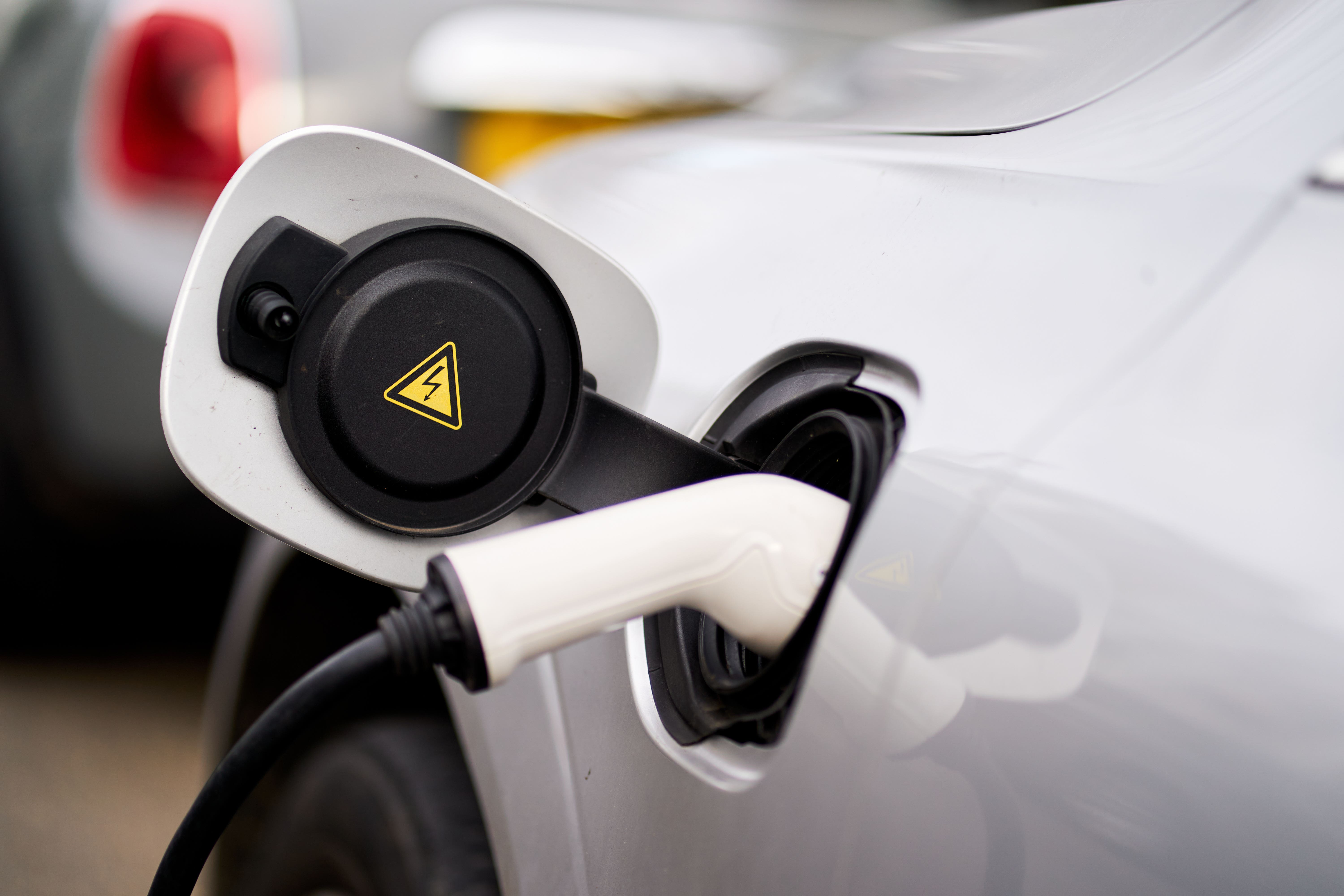Poor phone signal is hitting the UK’s electric car drivers
Some 15.2% of new cars registered in March were pure electrics

Electric vehicle (EV) drivers could struggle to use around two-thirds of Britain’s most common type of public chargepoint because of patchy mobile signals.
The RAC Foundation, which conducted the research, warned that the issue risks “undermining” confidence in EV infrastructure.
The study found that 66% of Type-2 chargers – which have speeds of up to 8kw – in Britain excluding London are in areas where at least one mobile network provider does not have usable 4G coverage.
In the capital, the figure is only slightly lower at 61.3%.
The vast majority of Type-2 public chargers require drivers to access them via mobile phone apps, and the chargers themselves need an adequate mobile connection to function.
Unless all four of Britain’s mobile network providers – EE, O2, Three and Vodafone – provide adequate coverage at a charger’s location, there is a risk a driver will be unable to recharge their EV, the report warned.
RAC Foundation director Steve Gooding said: “Drivers of vehicles fuelled by petrol and diesel are used to reliable and hassle-free filling up at any of the 8,400 forecourts across Britain.
“The same cannot yet be said of topping up the battery of an electric car at a public chargepoint.
“Where signal connectivity at a chargepoint is a problem, drivers might conclude that the charger is at fault, hence undermining the confidence we should be building in the reliability of public charging options for electric vehicles.”

Mr Gooding warned that poor connectivity for Type-2 chargers “won’t get picked up” in the Government’s new mandatory reporting system as it only applies to the rapid charger network.
He called for a “better approach” to highlighting connectivity issues, so that designers can make “workarounds” available such as wi-fi hotspots and satellite internet provision.
Last week the Society of Motor Manufacturers and Traders (SMMT) issued renewed pleas for EV purchase incentives after figures showed a decline in the vehicles’ share of the new car market.
Some 15.2% of new cars registered in March were pure electrics, down from 16.2% during the same month last year.
The SMMT is urging the Government to halve VAT on the purchase of new EVs, amend plans to introduce vehicle excise duty for EVs, and reduce VAT on public charging to bring it into line with home charging.
The RAC Foundation’s report was based on analysis of figures from the Department for Transport and mobile network mapping company Teragence.
A Government spokesperson said: “We’ve invested £1 billion to increase 4G coverage and are on track to have 95% of the UK covered by the end of next year.
“The number of new electric vehicles and plug-ins sold overall is higher than last year thanks £2 billion Government investment and we continue to help more people to make the switch to electric through schemes such as the £381 million Local Electric Vehicle (LEVI) fund, helping to rollout charging infrastructure.”
Bookmark popover
Removed from bookmarks